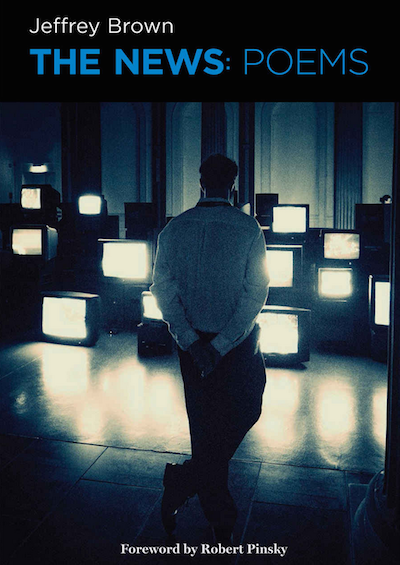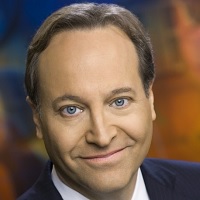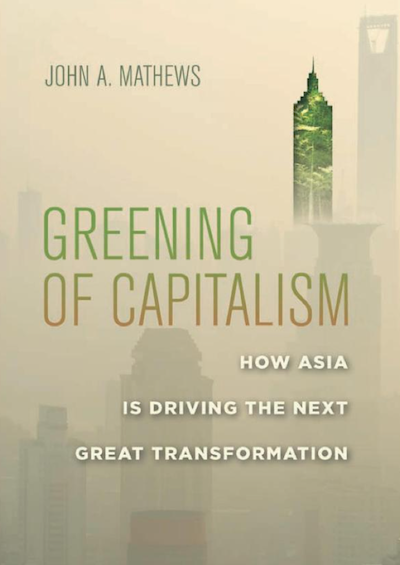The News Beyond the Camera
Sights and insights from a poet-television newsman.
June 6, 2015

The daily news is a greedy monster that must be fed. I learned that long ago when I stumbled, accident upon accident, into journalism. I like to write, like to learn, like to look, sometimes even like to talk to people.
We go “into the field,” where news is being made. The enormous privilege of this: We journalists are able to go places most people cannot go, to enter into the lives of others to a degree that runs the range from enlightening and transformative to painful and embarrassing.
We’re able to ask questions that genuinely interest us of people who have compelling, even important things to say.
Why then write poetry? Or: Why write about these experiences through poetry? To explore what happened from another angle, to see beyond the camera, to imagine what might be there, to use the language in a different way.
Like the news, poetry seeks to inform our lives and helps us to reflect upon who we are and the conditions, disastrous or delightful, of the world in which we live.
1. On the flight over to Beirut, I read Elias Khoury’s “Little Mountain,” a short novel set amid the brutal fighting, street by street, during Lebanon’s 15-year-civil war. And then I was walking those same streets, alive with life. However, there were signs everywhere of the ferocity of battles, bombings and assassinations layered through time:
Beirut
“This is the family tradition: my father
killed by his bodyguards, his father
killed. They chose sides, chose right
and then wrong and he who longs for
the security of death in his bed must
leave this country. My son knows this
and his will too.” Within the same frame
the eye deceives, meanings hide when
you stand outside this history. What
I’d thought was construction, a building
with views toward the sea, on the rise,
was its opposite, destruction: pockmarked,
see-through, gun-wrecked Holiday Inn,
monument against forgetting. Restaurants
filled, kebabs on the grill, and on this day
jets in Gaza, far to the south. In the south
of this city, craters from other jets
left, again, unfilled, while a billboard
touts the Party of God. Permission
required to aim the camera, granted by
Hezbollah-–watching us watching them
watching them watching us, and all know
who controls these streets. Later I walk the
Corniche, in this Paris of the Middle East-–
was it ever so? Two decades or war—
from Little Mountain: “We were looking
for the sea.” Look again, so close, here!
And there—can it be? The familiar choice
of chocolate or glazed, no wrong or right.
Hezbollah by day, Dunkin’ Donuts at night.
Auden saw it in Brueghel’s Icarus:
within the same frame, tragedy plus
a girl eating ice cream, strawberry.
This is what we encounter, too: memories
that encompass craters and bombed hotels,
faces red with hate at the jets overhead.
But also the sound of the oud, the light
in the park, nervous fathers watching for falls.
2. Haiti, a year after the earthquake: The rubble was still everywhere, though in neater piles. The despair in the tent camps was growing. The realization had hit that this was no temporary solution. And now, cholera. It had started in the rural central highlands and swept down into the cities:
Haiti
“Epidemiologically this area is terrifying”
La Saline—the giant slum
on a sun-soaked shit-soaked morning
as the children filled their buckets
from a makeshift well. The pigs
scavenged while a rat watched
all. Why bother to hide?
La Saline: somewhere nearby
the assaulted salted sea.
Days later, the last light high
In the Central Plateau so far so
bone-crushed by the road (I’d
argued against going), Saut d’Eau.
They filled the benches
And told us of death upon death.
A man who’d lost his son:
“I am a bird left without
a branch to land on.”
3. Finally, a view of news on the crisis in the European Union:
European Union
“Europe Dodges a Crisis in Spain
but Perils Lurk” across the continent.
A pitiful game of who’s-the-jerk
who gambled and lost my retirement?
An addiction to borrowed money
a contagion of bubbles burst
inevitable laws of boom and bust
yet no one imagined the worst.
Fiscal integration — a dream and a lie
in Madrid and Athens it’s sung.
Take that to the bank, Mr. Minister
in any continental tongue.
Editor’s Note: The poems are reprinted from “The News: Poems,” copyright 2015, by Jeffrey Brown, with permission from the author and from Copper Canyon Press, Port Townsend, Washington, www.coppercanyonpress.org.
Takeaways
The News Beyond the Camera -- Sights and insights from a poet-television newsman.
The enormous privilege of this: we journalists are able to go places most people cannot go.
Why write about the news through poetry? To explore what happened from another angle, to see beyond the camera.

